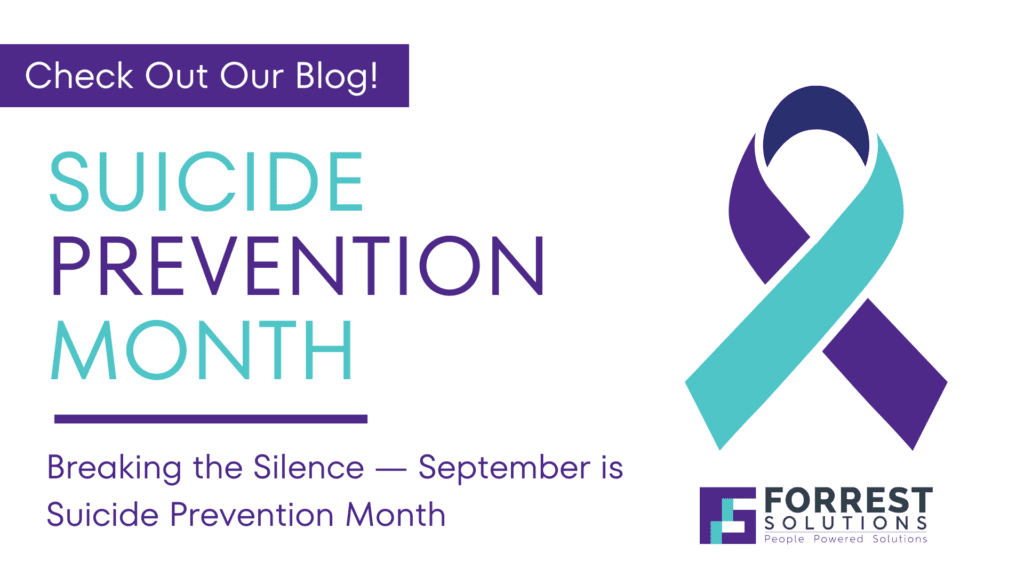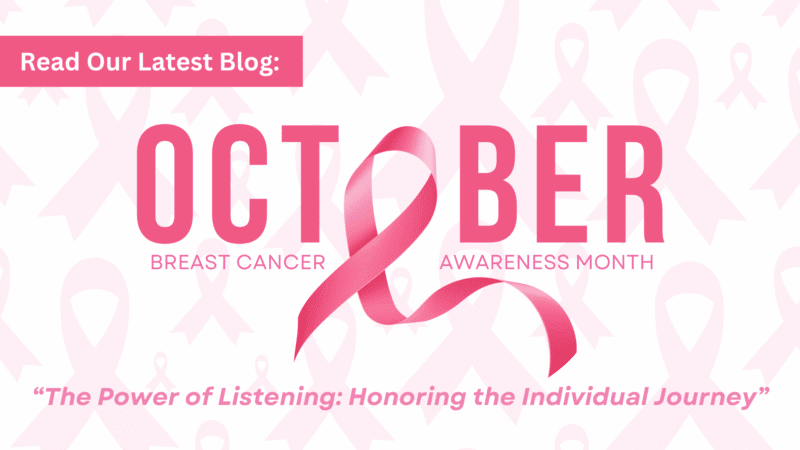
September is Suicide Prevention Month, a time dedicated to breaking stigmas, fostering open conversations, and creating a supportive environment for those struggling with suicidal ideation.
Suicide is a complex and sensitive issue, but it’s one that needs to be addressed openly and compassionately for those struggling to feel comfortable reaching out for help. In the United States, Suicide is the 11th leading cause of death with over 50,000 suicide deaths in 2023. These numbers represent not just statistics, but the loss of loved ones, friends, and community members. Fostering an environment where people are able to have open conversations and not scared to ask for help saves lives — expanding access to mental health treatment helps saves live — being kind saves lives.
Understanding the Importance of Awareness
One of the key components of Suicide Prevention Month is raising awareness. Many people still hesitate to talk about mental health and suicide, often due to stigma, fear, or misunderstanding. This silence can make those struggling with suicidal thoughts feel isolated and unsupported, which can worsen their condition. By increasing awareness, we can break down these barriers and encourage more open conversations about mental health.
It’s important to understand that suicide is not the result of a single factor, but rather a combination of mental health issues, life stressors, and sometimes, a lack of social support. Conditions like depression, anxiety, and substance abuse are significant risk factors, but they are treatable. With the right support and intervention, people experiencing suicidal thoughts can find hope and recovery.
The Role of Community and Connection
Community support plays a crucial role in suicide prevention. It’s essential to create environments where people feel safe to express their feelings without judgment. Simple acts of kindness, listening without interrupting, and offering support can make a huge difference in someone’s life. Often, the person struggling with suicidal thoughts feels they are a burden to others. By reaching out, we can help dispel this misconception and show them that they are valued and loved.
Social connection is a powerful tool in combating suicidal thoughts. Loneliness and isolation are significant risk factors, particularly among vulnerable groups like the elderly, LGBTQ+ individuals, and those with chronic illnesses. Building and maintaining strong relationships can provide a safety net for those at risk. Engaging in community activities, joining support groups, or simply staying in touch with loved ones can help reduce feelings of isolation and provide a sense of belonging.
Recognizing the Signs
Understanding the warning signs of suicide is crucial for prevention. These signs can be subtle and may vary from person to person, but some common indicators include:
- Talking about wanting to die or to kill oneself
- Expressing feelings of hopelessness or having no reason to live
- Withdrawing from friends, family, and activities
- Increased use of alcohol or drugs
- Sudden mood swings or changes in behavior
- Giving away prized possessions
If you notice these signs in someone, it’s important to take them seriously. Don’t hesitate to ask them directly if they are thinking about suicide. Contrary to common myths, asking about suicide does not plant the idea in someone’s mind. Instead, it shows that you care and are willing to listen.
Getting Help and Offering Support
If you or someone you know is struggling with suicidal thoughts, it’s vital to seek help immediately. There are many resources available, including hotlines, counseling services, and support groups. The National Suicide Prevention Lifeline (1-800-273-TALK) provides free, confidential support 24/7. For those who prefer texting, the Crisis Text Line offers support by texting HOME to 741741.
It’s also important to remember that while professional help is crucial, everyday support from friends and family can be equally impactful. Be patient, compassionate, and willing to listen. Sometimes, just being there can make all the difference.




